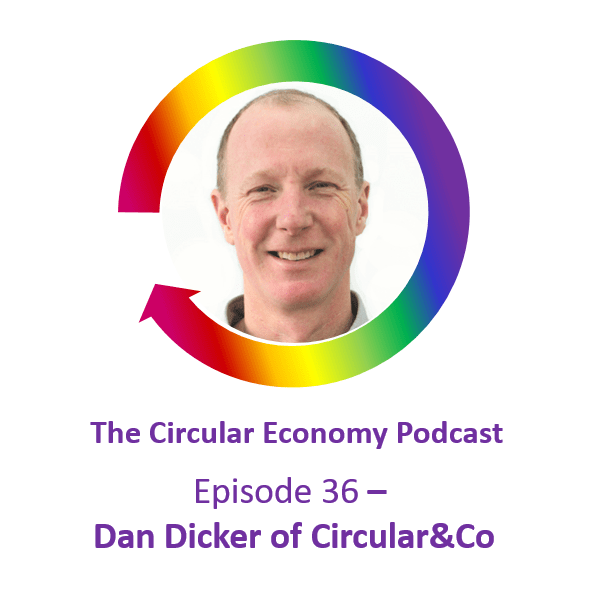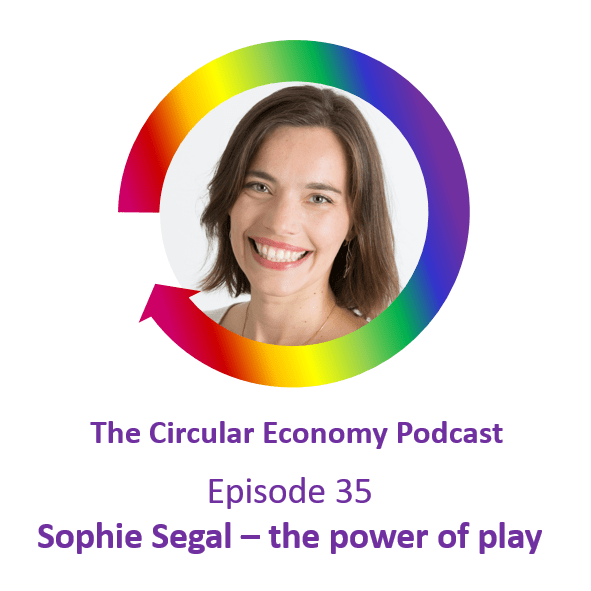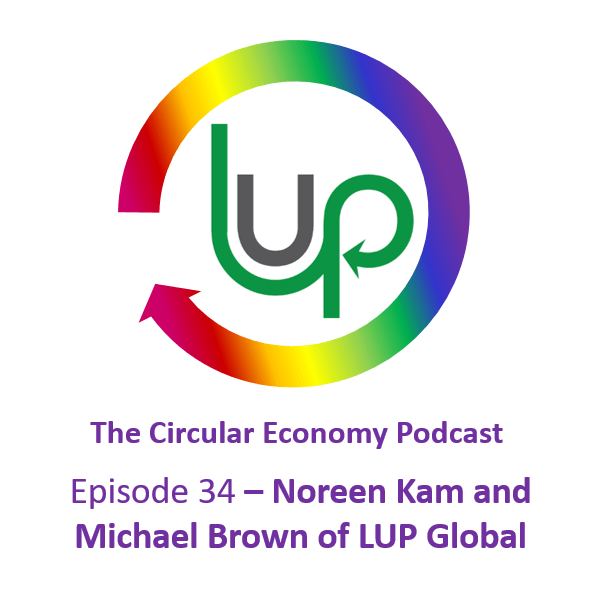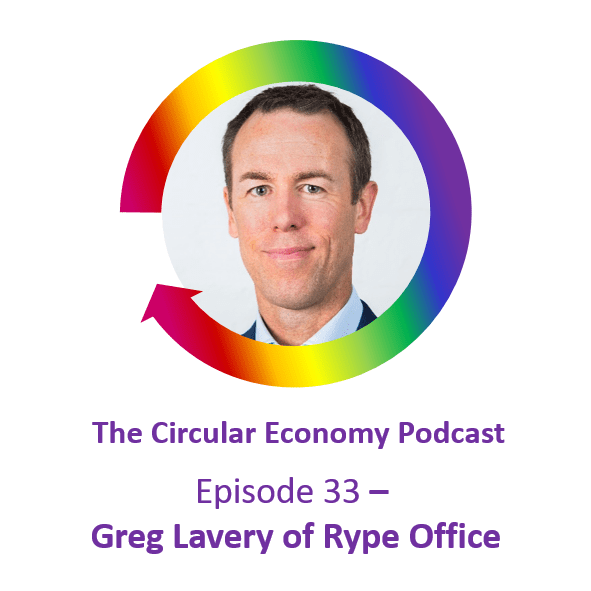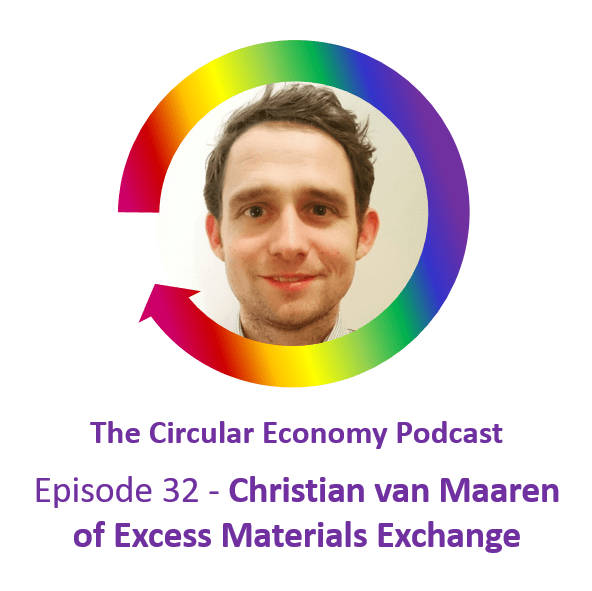Podcast: Play in new window | Download
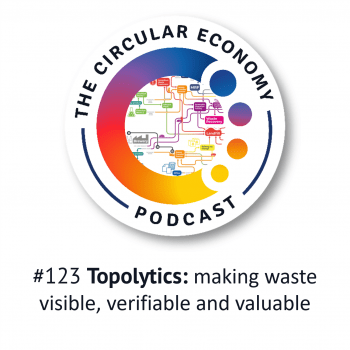
We explore why it’s important for business to map, and understand their waste flows:
- what it is, specifically;
- where it comes from and goes to;
- how much there is – and why!;
- and to understand the opportunities for wasting less and circulating more value.
Topolytics is a data analytics business that is making the world’s waste visible, verifiable and valuable.
Catherine Weetman talks to Michael Groves and Fleur Ruckley, to find out how data analytics, mapping and machine learning can make waste and resource management more transparent, efficient and effective, both commercially and environmentally.
Founder and CEO Michael Groves is a geographer with a PhD in aerial and satellite earth observation. Michael has over 20 years’ experience in environmental management and sustainability reporting.
Fleur Ruckley is Topolytics’ Head of Implementation, using Topolytics’ WasteMap® platform to generate actionable waste and resources analytics for clients and their supply chains.
Fleur has a degree in Natural Sciences and a Masters in Environmental Management, and has worked in the charity, public and private sector supporting organisations, communities and schools to develop and implement sustainable and circular policies and practices. Fleur is a Chartered Waste Manager and is a member of the Circular Economy Steering Group for the Institute for Environmental Management & Assessment.
Leveraging Topolytics waste map means companies can identify areas for improvement, such as preventing or reducing the waste or by re-designing processes and products, to support reuse and to achieve more efficient and sustainable outcomes.
Mike explains how those sectors with significant waste generation are showing increasing interest in this. Business that understand what materials they produce and consume, can then make better decisions about recovery, reuse and recycling, and Geospatial analysis can help reduce waste by identifying material flow and leakage.
Fleur tells us how companies are starting to see the benefits of using data and modeling to reduce waste in their supply chains, with improvements in ESG reporting, supplier management, and overall performance.
Mike also highlights the potential for industrial symbiosis, using unwanted materials to create resources for another organisation – in other words, new by-products and value opportunities!
International speaker, author and strategic advisor, Catherine Weetman helps people discover why circular, regenerative and fair solutions are better for people, planet – and prosperity.
Catherine’s award-winning book: A Circular Economy Handbook: How to Build a More Resilient, Competitive and Sustainable Business includes lots of practical examples and tips on getting started.
Stay in touch for free insights and updates…
Read on for more on our guest and links to the people, organisations and other resources we mention.
Don’t forget, you can subscribe to the podcast series on iTunes, Google Podcasts, PlayerFM, Spotify, TuneIn, or search for “circular economy” in your favourite podcast app. Stay in touch to get free insights and updates, direct to your inbox…
You can also use our interactive, searchable podcast index to find episodes by sector, by region or by circular strategy. Plus, there is now a regular Circular Economy Podcast newsletter, so you get the latest episode show notes and links delivered to your inbox on Sunday morning, each fortnight. The newsletter includes a link to the episode page on our website, with an audio player. You can subscribe by clicking this link to update your preferences.
Links we mention in the episode:
- Circular Economy Podcast on LinkedIn: linkedin.com/showcase/circular-economy-podcast/
- Circular Economy Podcast website: circulareconomypodcast.com
- Catherine Weetman on LinkedIn: https://www.linkedin.com/in/catherine-weetman-9419107/
- A Circular Economy Handbook: How to Build a More Resilient, Competitive and Sustainable Business – buy from any good bookseller, or direct from the publisher Kogan Page, which ships worldwide (free shipping to UK and US) https://www.koganpage.com/CircEcon2
- Interactive podcast index https://www.rethinkglobal.info/circular-economy-podcast-index/
- Rethink Global www.rethinkglobal.info
- Sign up to get the podcast player and shownotes for each new episode emailed to your inbox
Links for our guests:
- Michael Groves on LinkedIn https://uk.linkedin.com/in/michaelanthonygroves
- Fleur Ruckly on LinkedIn https://uk.linkedin.com/in/fleurruckley
- Topolytics website: https://topolytics.com/
- Topolytics LinkedIn: https://www.linkedin.com/company/topolytics/
- Topolytics on X: https://twitter.com/topolytics
- See Topolytics WasteMap through the eyes of the World Economic Forum https://bit.ly/3vuBMUj
- Topolytics position paper – Putting the ‘W’ into ESG https://bit.ly/3V6RgJc
Guest bios
Michael Groves is a geographer with a PhD in aerial and satellite earth observation, with over 20 years’ experience in environmental management and sustainability reporting. He is the founder and CEO of Topolytics – a data analytics business that is making the world’s waste visible, verifiable and valuable.
Fleur is Head of Implementation at Topolytics, with a focus on generating actionable waste and resources analytics for customers and their supply chains through implementation of WasteMap®. Topolytics’ WasteMap® platform uses data analytics, mapping and machine learning to make waste and resource management more transparent, more efficient and more effective commercially and environmentally.
Fleur has a BA (Hons) in Natural Sciences and an MSc in Environmental Management. She has worked in the charity, public and private sector supporting businesses, universities, government agencies, communities and schools to develop and implement sustainable and circular policies and practices. Fleur is a Chartered Waste Manager and a member of the Institute for Environmental Management CircularEconomy Network Steering Group and international committees developing circular economy standards.
Topolytics is a data analytics business that is making waste visible, verifiable and valuable. Our WasteMap® platform generates insights for waste producing companies in sectors such as manufacturing, transport, property, mining and retail that identify efficiencies, measure impact, improve ESG reporting and drive closed loops for products and packaging. WasteMap brings granular waste and recycling supply chain data into one place and one standardised view. It can operate across any number of sites, material types, contractors and operating territories. Our customers use WasteMap to meet key corporate KPIs on waste, circularity and NetZero and to generate higher quality, validated data for ESG reports.
Check out WasteMap in this film from the World Economic Forum https://bit.ly/3vuBMUj
Playlist: getting started with the circular economy…
Want to know more about the what the circular economy really is, and how it can help your business? Here’s a playlist to help you get to grips with the concept, how it creates value, and the common myths (spoiler alert – it’s much more than recycling!)
- #1 What is the circular economy: A quick intro to explain what the circular economy is and why it’s important. We explore how it helps create better products and services, and at the same time helps to make a better world. I break it down into my 5 circular economy components, helping you think about each part of your business.
- #2 The linear economy and your risk checklist: We dig a bit deeper into the way we do business now, the linear economy, and why that’s creating problems for business, society and our living planet. Also, we’ll look at the risks that emerge from those big-picture issues, and how they might affect your organisation.
- #90 Does circular mean it’s sustainable? Does circular mean it’s sustainable? Catherine Weetman is worried that companies are using circular economy solutions to grow their business (and their footprints).
- #101 Circular is better for people, planet and profit! How three simple strategies can help you get started with circular and regenerative solutions that are better for people, planet and profit.
- #120 Priorities are changing: people find life is better when we care for and share things – circular economy strategies make that better for business, too.
And here’s Catherine’s guide: What is the circular economy?
Want to dig deeper?
Why not buy Catherine’s award-winning book, A Circular Economy Handbook: How to Build a More Resilient, Competitive and Sustainable Business. This comprehensive guide uses a bottom-up, practical approach, and includes hundreds of real examples from around the world, to help you really ‘get’ the circular economy. Even better, you’ll be inspired with ideas to make your own business more competitive, resilient and sustainable.
Please let us know what you think of the podcast – and we’d love it if you could leave us a review on iTunes, or wherever you find your podcasts. Or send us an email…
Please let us know what you think of the podcast – and we’d love it if you could leave us a review on iTunes, or wherever you find your podcasts. Or send us an email…
Podcast music
Thanks to Belinda O’Hooley and Heidi Tidow, otherwise known as the brilliant, inventive and generous folk duo, O’Hooley & Tidow for allowing me to use the instrumentals from the live version of Summat’s Brewin’ as music for the podcast. You can find the whole track (inspired by the Copper Family song “Oh Good Ale”) on their album, also called Summat’s Brewin’. Or, follow them on Twitter.
